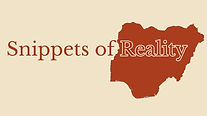
Nigeria has more than one nickname but my favourite is “Africa’s Giant” – and for good reason. The country is home to over ´200 million, making it the most populous country in Africa and the 7th largest in the world. With high birth rates and a predominantly young population, Nigeria is projected to become the third most populous nation worldwide by 2050, with a population exceeding 500 million. Currently, the population is roughly split between urban and rural areas, with the bustling city of Lagos alone housing more than 20 million people.
Lagos serves as both the cultural heart of Nigeria and a global hub, particularly known for being the birthplace of Afrobeats. This genre, which is increasingly taken international music charts by storm, represents just one of Nigeria’s many cultural exports. From world-renowned authors to a vibrant diaspora, Nigeria’s influence is far beyond its borders.
Formerly a british colony, Nigeria gained its independence in 1960, but the legacy of colonization continues to shape the country in profound ways. The British influence is still evident in Nigeria’s political structures and struggles and societal norms including the widespread use of English as the official language. While English is used for formal communication, most Nigerians first learn one of the over 500 indigenous languages as their mother tongue. To bridge the linguistic diversity, Pidgin English – also known as “easy English” – is commonly used for everyday conversation. This grammatically simplified version of English incorporates elements of the country’s three dominant languages: Hausa, Yoruba, and Igbo
These three languages also reflect Nigeria’s major cultural zones. The Hausa, predominantly Muslim, live in the north, where traditional roles are more prominent in society. The Yoruba, found in the southwest, and the Igbo in the southest are primarily Christian, though the Yoruba population includes both Christians and Muslims. Tribal affiliation plays a crucial role in shaping social and personal identity, and is openly discussed in both formal and informal settings.

Comments